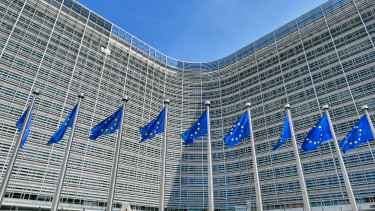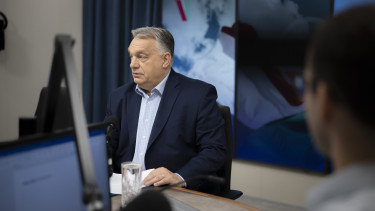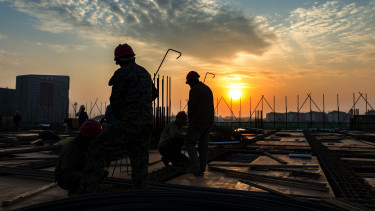WHO: Failure to prepare for coronavirus could be a "fatal mistake"

As of Thursday morning, China has reported more than 78,000 COVID-19 cases, including 2,747 deaths.
What’s happening in the rest of the world is now our greatest concern,
” said Tedros.
Outside China there are now 3,474 cases in 44 countries and 54 deaths.
We’re at a decisive point.
For the past two days the number of new cases reported in the rest of the world has exceeded the number of new cases reported from China, he added.
In the past 24 hours seven countries have reported cases for the first time: Brazil, Georgia, Greece, North Macedonia, Norway, Pakistan and Romania.
"My message to each of these countries is that this is your window of opportunity. If you act aggressively now, you can contain this virus, you can prevent people getting sick, you can save lives."
He said the most important advice he could give to these countries is "to move swiftly and contain the virus at its bed."
Tedros said the WHO advocates a comprehensive approach, because no country could feel safe.
Every country must be ready for its first case. No country should assume it won’t get cases. That could be a fatal mistake, and quite literally.
"This virus does not respect borders. It does not distinguish between races or ethnicities. It has no regard for a country’s GDP or level of development," he added.
Tedros underlined that the point is not only to prevent cases arriving on your shores, but what you do when you have cases.
"But we’re not hopeless, we’re not defenceless. There are things every country and every person can do."
Every country must be ready to detect cases early, to isolate patients, track contacts, provide quality clinical care, prevent hospital outbreaks and prevent community transmission, he said.
What countries must do before the first case is detected?
Before the first case arrives, countries must make sure to have:
- Isolation units ready to go;
- Enough medical oxygen, ventilators, and other vital equipment;
- A reporting system in place to learn about other cases in the country;
- Ways to raise alert if there’s a concern;
- Health workers trained and “armed with” the necessary equipment to stay safe;
- Health workers knowing how to take samples from patients;
- Right measures at airports and borders crossing to test for the virus;
- Labs with the right chemicals to allow the testing of samples;
- Readiness to treat patients with serious or critical disease;
- Hospitals and clinics with the right procedures to prevent and control infections;
- People provided with the right information about the symptoms (it’s not a runny nose, in 90% of the cases it’s fever and 70% of the cases it’s dry cough);
- The ability to fight rumours and send clear and understandable messages.
"Every health minister must be able to answer these questions now. These questions will make the difference between one case and 100 cases in the coming days and weeks," warned Tedros.
If the answer to any of these questions is ‘no’, your country has a gap that this virus will exploit.
"Even developed countries could be surprises, we have already seen that."
As for responsive action, Tedros said the WHO has shipped testing kits to 57 countries and personal protective equipment to 85 countries that need it. It has also trained more than 80,000 health workers through online courses in multiple languages.
This is not a time for fear. This is a time for taking action now to prevent infections and save lives now. Fear and panic doesn’t help. The most important thing is to calm down and do the right things to fight this very dangerous virus
, he concluded.
"We can say with great caution that the probability of the coronavirus appearing in Hungary is high. We need to prepare our defenses," Prime Minister Viktor Orbán said on public radio Friday morning.
Cover photo: Getty Images








